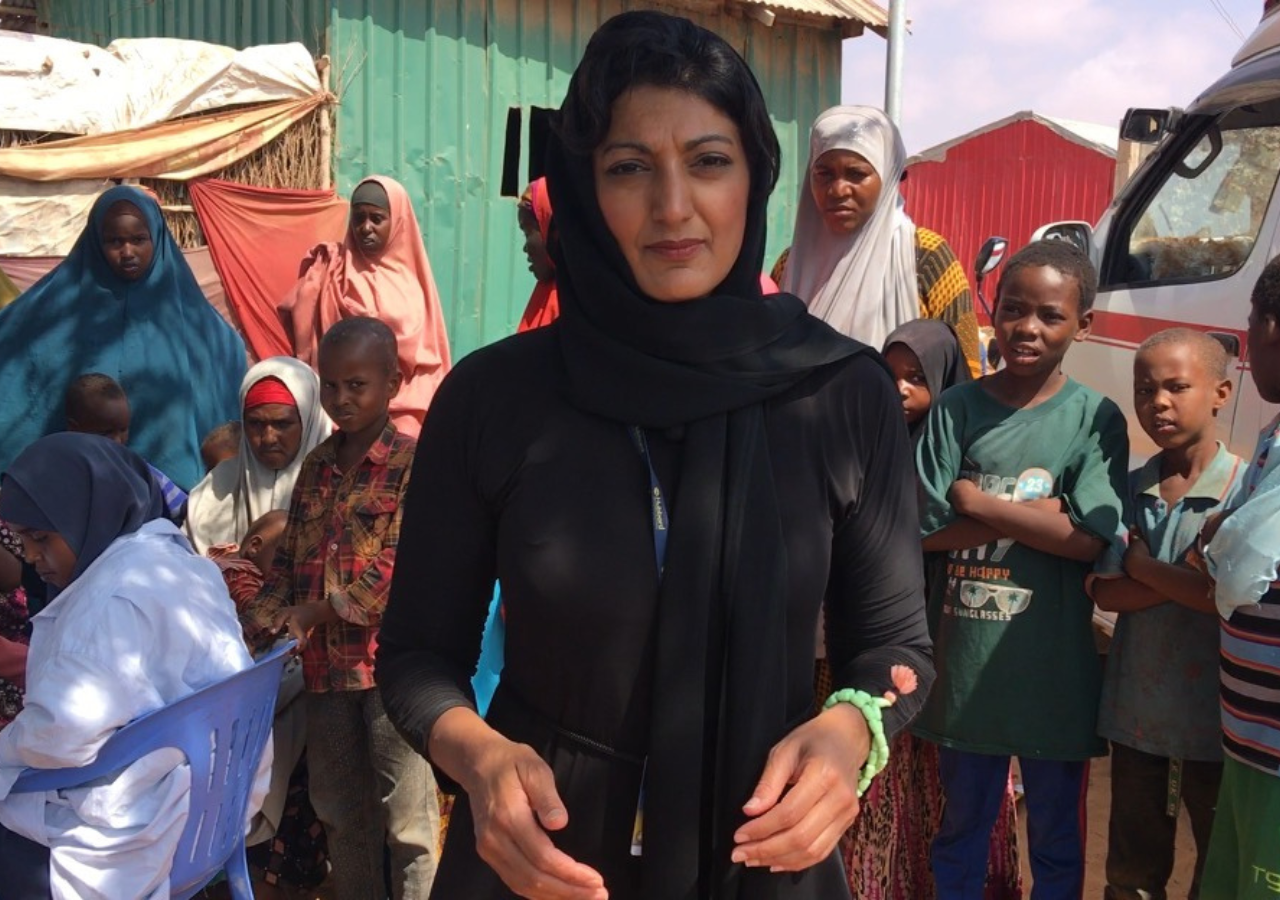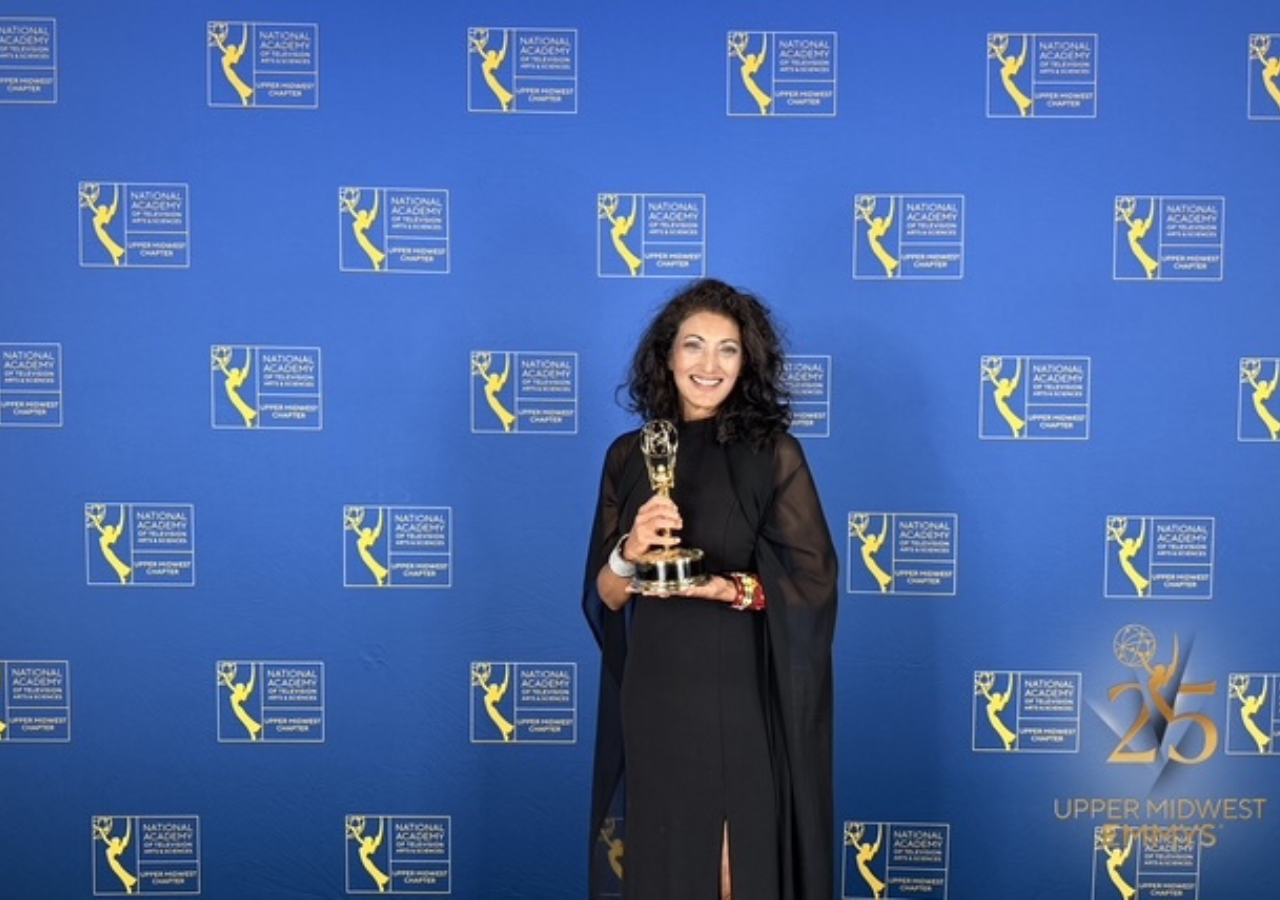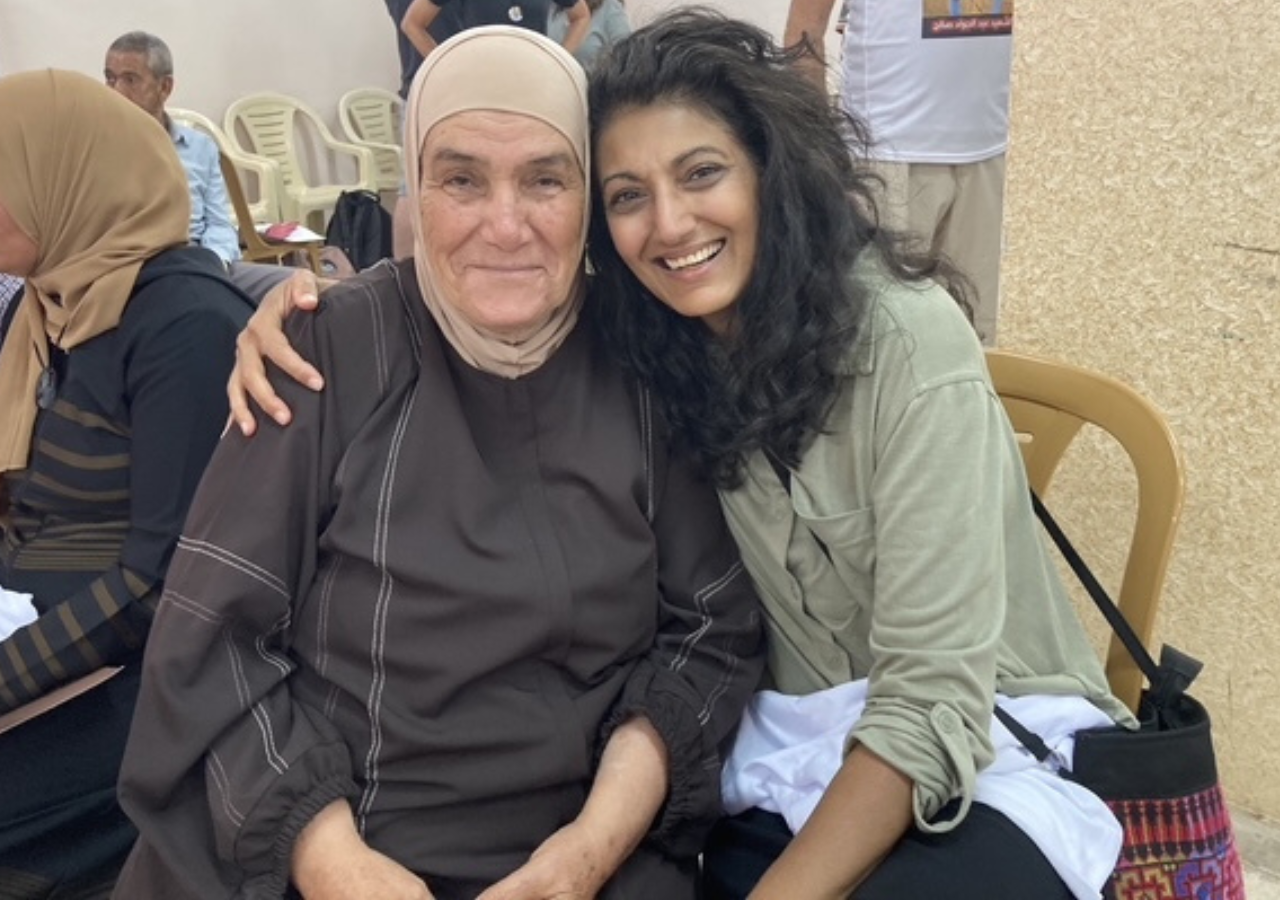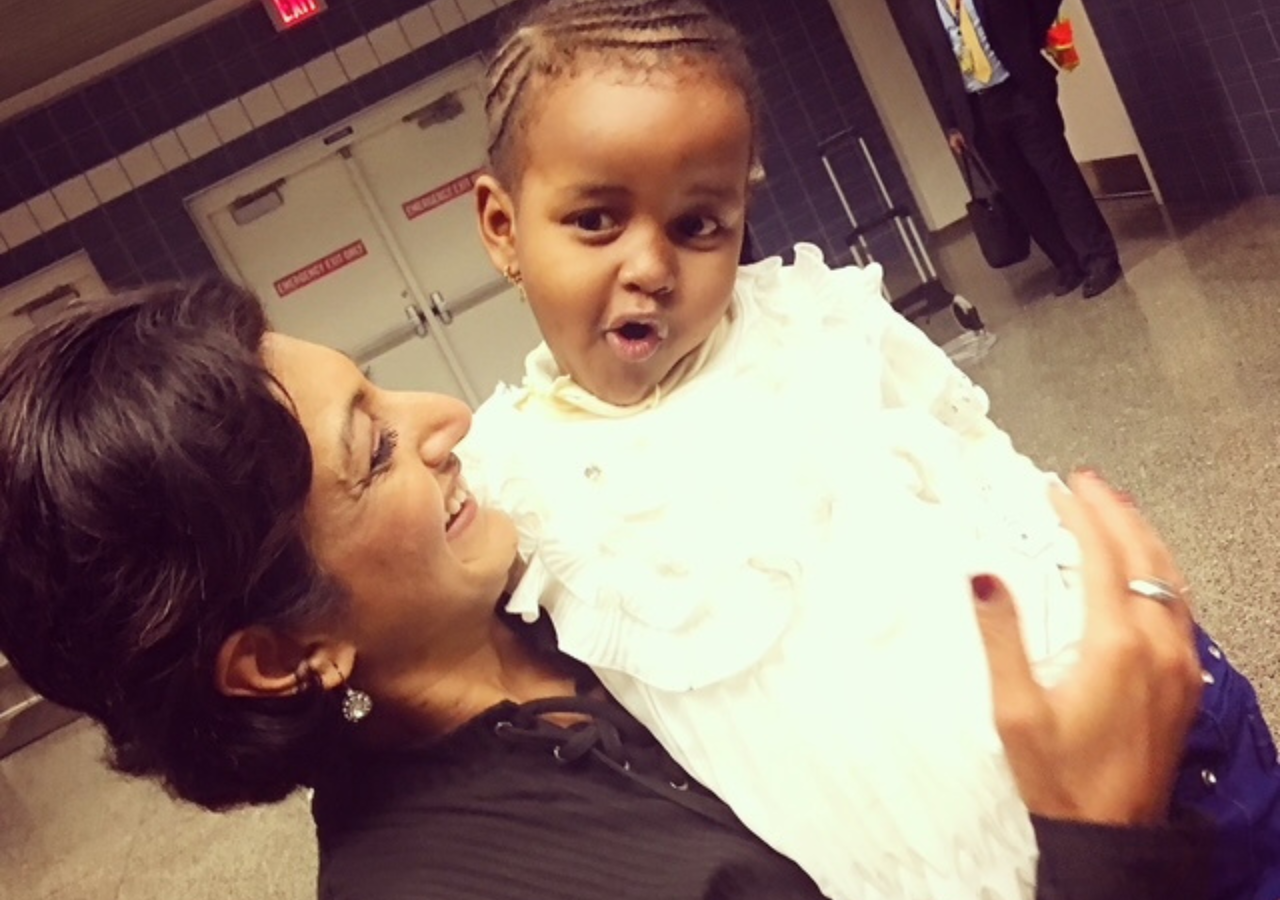At the age of seven, Farrah sat and watched a young boy on the BBC news tell the story of losing his family. At that moment, Farrah felt a sense of urgency to ensure his story, and others similar, were brought to light. This decision has led to her making waves through an unconventional career path.
“I made a decision very early in my career that I wanted to tell the stories of the voiceless, the marginalised, the underrepresented, the unseen,” she says.
Farrah has been intentional about finding and telling these stories everywhere she goes to uncover society’s deep rooted social injustices. She has worked as a journalist, producer, writer, and director in multiple states in the US and several countries in Europe, the Middle East, and Africa. Her grit and determination had Farrah taking on any opportunity thrown her way, determined to enhance her skills as an all round journalist.
The profession of journalism is an essential public service that supports well-functioning democratic societies. Journalists, like Farrah, work hard to ensure accurate and reliable information is delivered. This information helps people to stay up-to-date with current events, and make informed decisions about their lives and communities.
An inspiration to Farrah, and her work, has been the renowned journalist Christiane Amanpour and her phrase “truthful not neutral.” Farrah’s work has seen her travel to Syria to report on violent conflict in the region, stationed at the US–Mexico border to investigate immigration policies, and covering protests in Ferguson, Missouri, to highlight the atrocities plaguing communities there.
Along the way, Farrah has uncovered the power and privilege attached to being the holder of stories from individuals she’s encountered. Children and adults that have been left with nothing but the power of speech, gift her their stories as she expertly guards them through war zones, border zones and perilous environments delivering them, unscathed, to the rest of the world.
“We try to shine a light into the shadows, to hold the powerful accountable, to lift the stories of the most vulnerable authentically and compassionately,” she says.
Farrah’s line of work is especially important in today’s world where misinformation and miscommunication run rampant. Media outlets have neglected journalistic ethics in favour of sensationalism, clicks, and profits leading to more misinformation, confused audiences, and less care for the truth.
“Every human being has an essential need to be heard and seen,” says Farrah. “When we tell stories through the eyes and voices of the people who live them, we honour the truth. I’m obsessed with the idea of truth in a world where there is so much disinformation.”
However, it’s not an easy task. Inspiring empathy and calling for change takes a toll, and often falls on deaf ears. More than 60 percent of individuals in the media industry recently reported that they struggle with anxiety. Over the years, Farrah herself has developed post-traumatic stress disorder (PTSD) from witnessing indescribable scenes.
To bear witness and tell all is a significant responsibility to shoulder but Farrah does it with great respect: “We have the capacity to weave a story, like you weave a fabric and turn it into a thing that hangs on, that is unforgettable, that embeds in your bones.”
Farrah has highlighted the benefits of therapy in learning to cope with personal challenges, and is careful to not pass on her struggles to the individuals she speaks with and reports on. This ultimately ensures the stories she recounts remain untouched, unscathed and unblemished in her plight to tell the truth.
One of Farrah’s current projects is co-producing an upcoming show for The Ismaili TV titled 4Chais, dedicated to connecting Ismailis across the globe and learning about their day-to-day lives. The production team hopes to bring a live version of the show to the Global Encounters Festival in 2025.
Farrah belongs to a collective of Ismaili creatives in Hollywood with actors, artists, musicians, producers, writers, and directors. “They are among the most ingenious, gifted, visionary people,” Farrah says. She looks forward to meeting more like-minded members of the Jamat from different parts of the world at the GE Festival in Dubai.
“Global Encounters is essentially our little collective multiplied exponentially all over the world; incredibly talented Ismailis who will be in the same place at the same time for a moment in time next summer.”











